PRODUCTS
Banana High Yield Solution
Banana High Yield Solution
|
Stage |
Notes |
Key Control Objects |
Solutions |
Operations |
| Seedling stage | Before transplanting |
1. Make the seedlings stronger and improve their disease resistance. 2. Reduce the number of pathogenic bacteria and eggs. |
Mancozeb, chlorothalonil, carbendazim, lambda-cyhalothrin and imidacloprid. High nitrogen and potassium foliar fertilizer. | The diseased banana seedlings such as dwarfing and mosaic in the seedbed should be found and destroyed in time |
| Early vegetative growth | Before 5-10 leaf stage | Bunchy top disease, aphids, Spodoptera litura | Zhongshengmycin, Kasugamycin, Thiamethoxam, chlorfenapyr, Emamectin benzoate, High Phosphorus Fertilizer, High Nitrogen Fertilizer | Fertilizer and water management should neither lack water nor allow roots to soak in water for a long time. During this period, gradually increase the fertilizer content. |
| Mid-late vegetative growth | Before 22-25 leaf stage | Leaf spot, scab, spider mite, weevil | Flusilazole, difenoconazole, pyraclostrobin, tebuconazole, abamectin, spirodiclofen, etoxazole, lambda-cyhalothrin, thiamethoxam, fenpropathrin. |
1.Spraying leaves on both sides to control red spider. 2.Both the ground and underground parts should be sprayed to control weevils. 3.Leaf spot and scab are the main diseases of banana, which should be controlled before and after the rain. |
| Budding stage | Before 26-30 leaf stage | Thrips, leaf spot, nematodes and weevils. | Emamectin benzoate, spinosyn, pyraclostrobin, lambda-cyhalothrin, chlorpyrifos, fosthiazate,fertilizer. |
1. Flower thrips are difficult to control, it is necessary to ensure safety and effect, so we must choose high-permeability agents. 2. Nematode control. This is the critical period for fruit growth, which is particularly important for fertilizer absorption. Therefore, nematicidal products are added during fertilization. |
| Young fruit stage | ||||
| Maturation stage | 36-42 leaf stage | Leaf spot, scab, spider mite, thrips | Emamectin benzoate, spinosyn, pyraclostrobin, lambda-cyhalothrin |
1. Spray after bagging. 2. Check the growth of the fruit in the bag frequently. 3. Reinforce the banana trees in a targeted manner. |
| Harvesting, storage and transportation | Storage and transportation after picking | Storage diseases | Chlorothalonil, Prochloraz, Brassinolide, etc. | Keep fresh |
Notes
Panama disease (or Banana wilt) is an incurable and highly contagious disease that infects banana plants throughout their entire growth period.
1. Choose sterile seedlings;
2. Strengthen fertilizer management;
3. Clean up suspected diseased trees in time (the roots should be thoroughly cleaned, burned, and treated with antibacterial treatment on the roots), and new trees should not be planted in the diseased area for about 3 years.
Nematodes: Infect roots. Orchards that have been planting bananas for three years are more susceptible to this disease.
1. Add nematicides (chlorpyrifos, fosthiazate, etc.) when flushing water or fertilizer in the orchard;
2. Clean up the orchard after harvest, and pay attention to the control of nematodes at this time。
Cleaning up the orchard: Clean up all the debris in the orchard after harvest, such as branches and leaves.
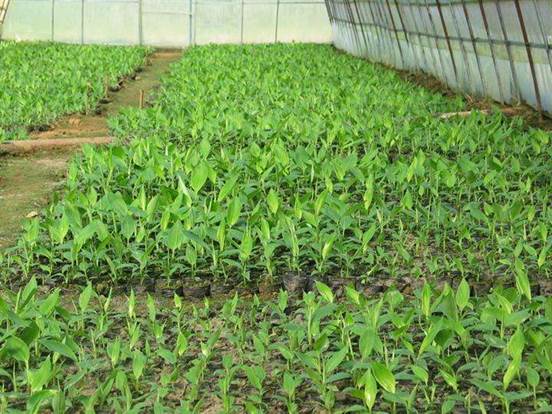
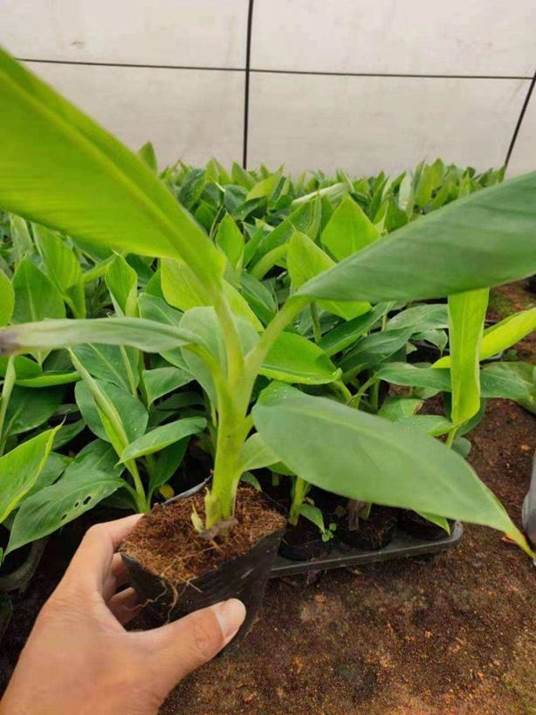
Seedling stage
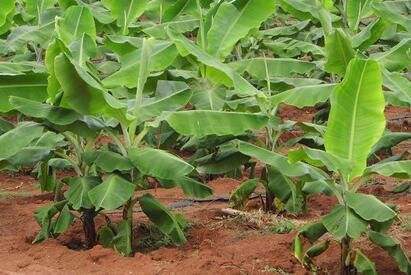
Early vegetative growth
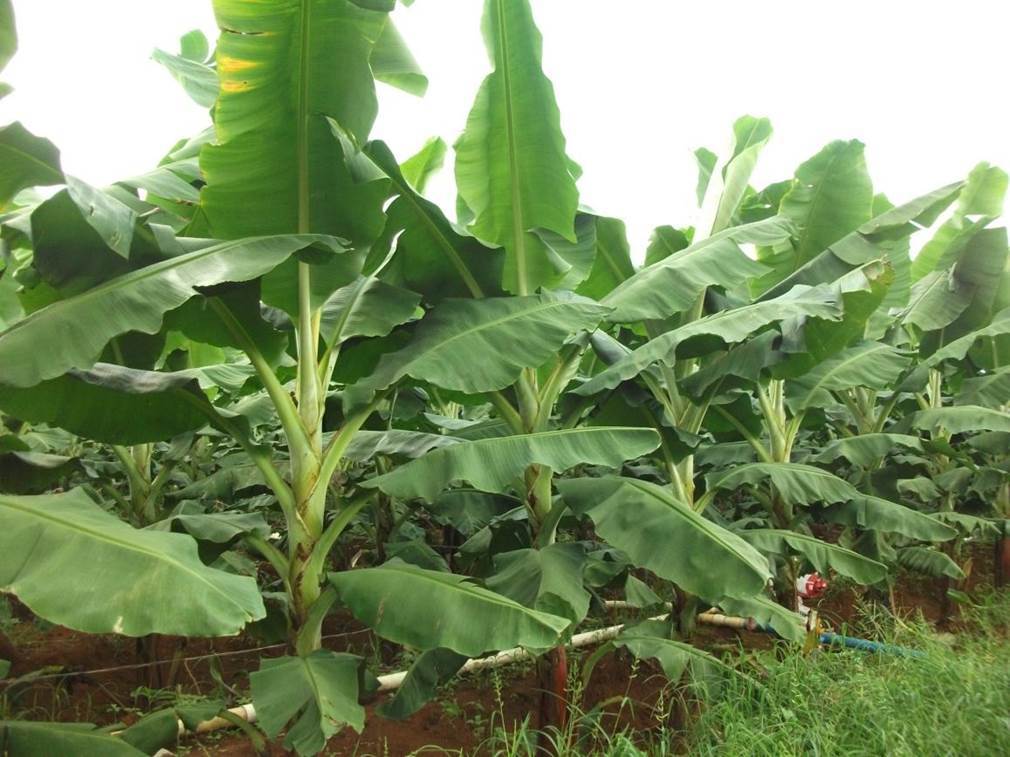
Mid-late vegetative growth
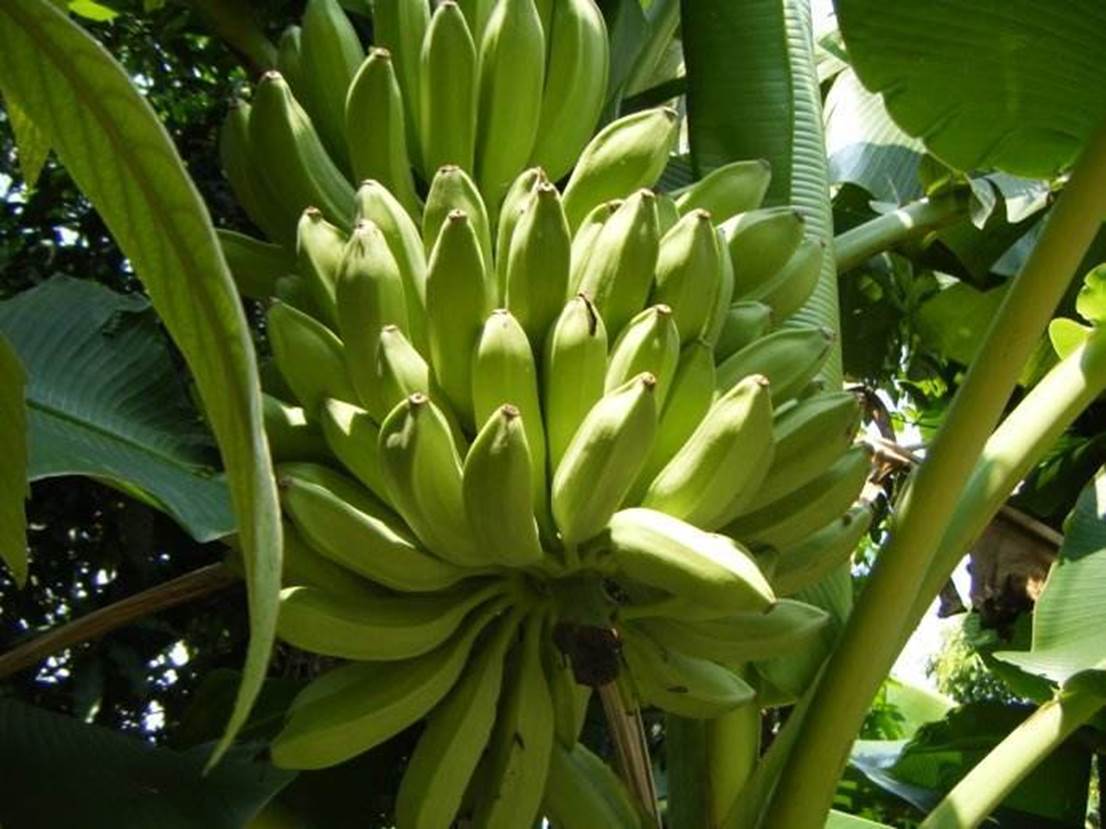
Maturation stage
previous

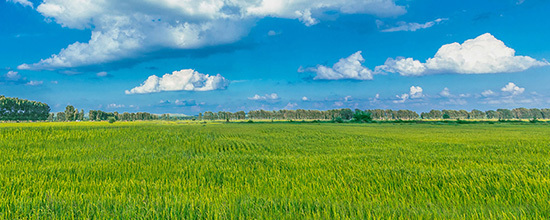
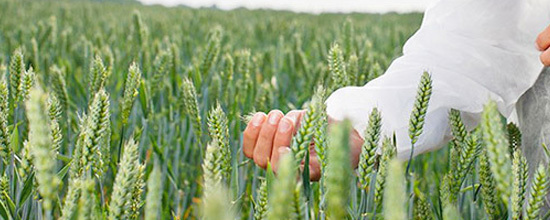


 LANGUAGE
LANGUAGE